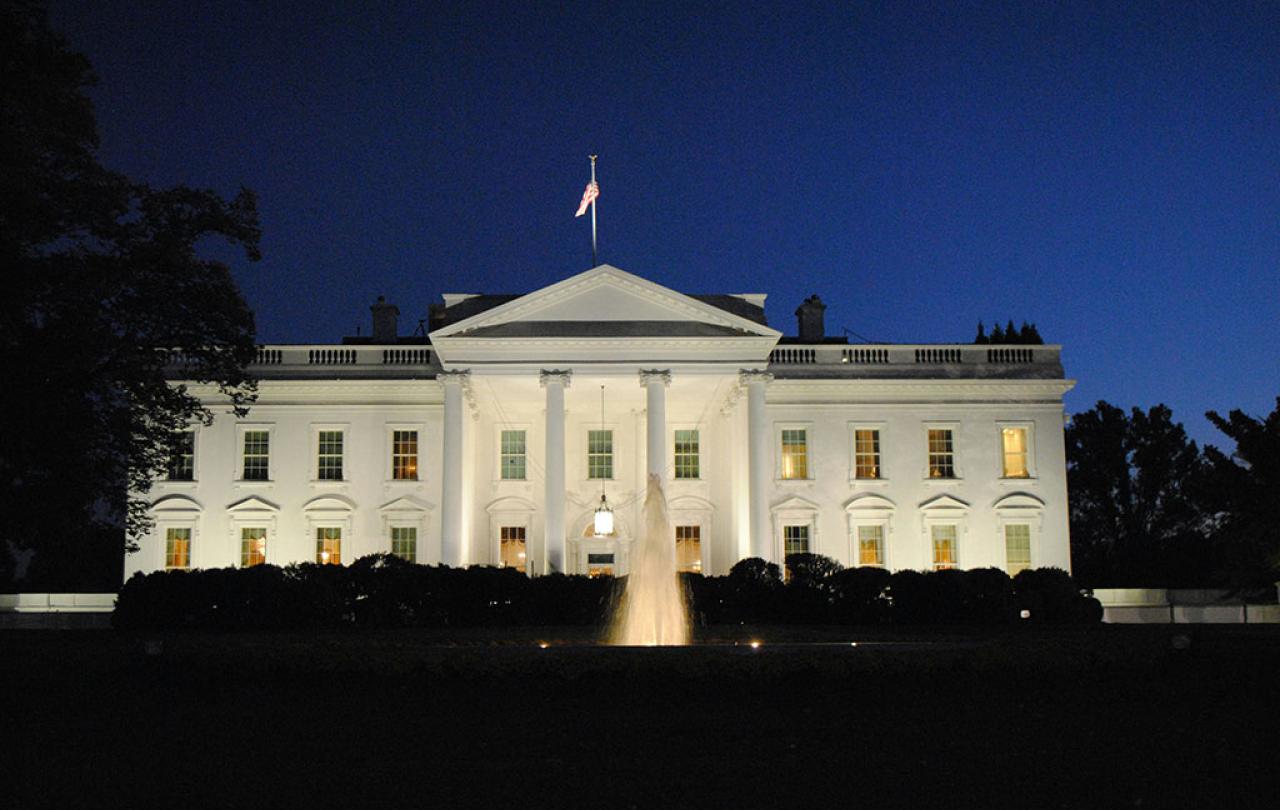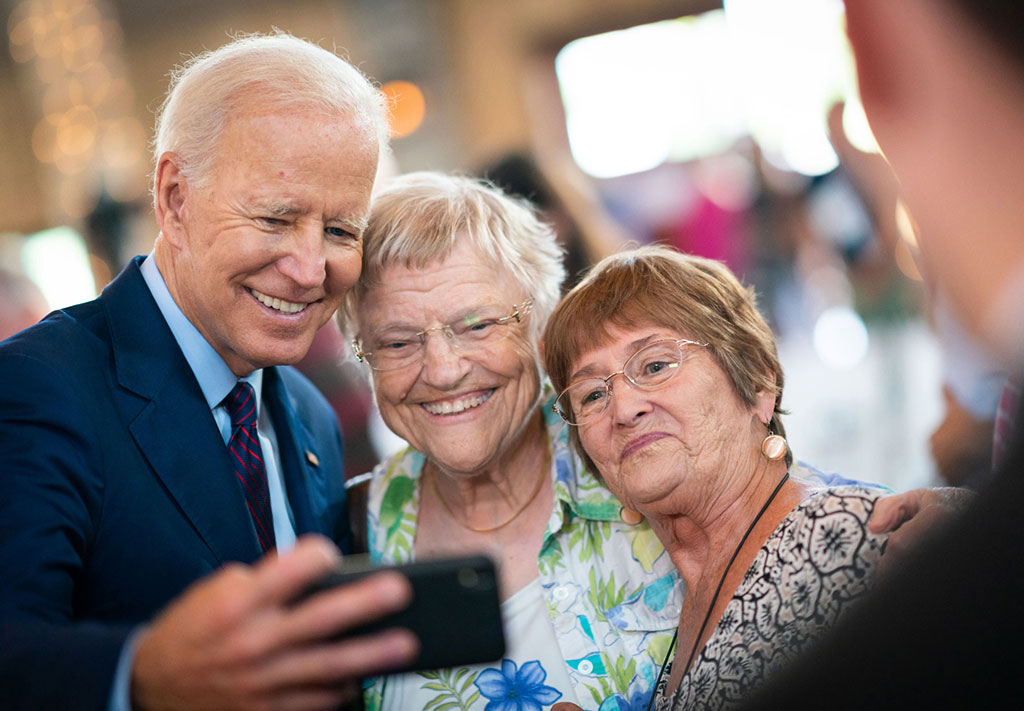
Archbishop Angaelos, the first Coptic Orthodox Archbishop of London, tells Graham Tomlin and Belle Tindall what life is like as a Coptic Orthodox monk, what makes this church so distinctive, and why, despite the harrowing danger that so many Christians are in, we should not consider them to be victims.
We wanted to discover your background and what has led you to where you are today, yet also about the situation faced by the Coptic Orthodox Church, both here in Europe, but also in Egypt as well.
But I'm just going to start off the conversation by asking you about your own story. You were born in Cairo, in Egypt - did you also grow up there? And how did you become an Archbishop in the Coptic Orthodox Church?
By complete surprise to me.
I was born in Egypt and we migrated as a family to Australia when I was five. I finished my education there, completed my qualifications, worked. And then I decided to go back to Egypt to join the monastery, expecting that I would live the rest of my life in, quite literally, the desert.
How old were you when you decided that?
I was the ripe old age of twenty-two.
And what prompted it? That’s quite an unusual decision.
It is, I think, like any sort of ministry, a calling.
And no, there were no bright lights or big voices. But I do remember the exact moment in my room, I was doing some postgraduate studies, so I had my books surrounding me, and all of a sudden I felt this incredible calling, this feeling. I remember I closed my book, put it on the side, and never looked back.
And that was it – I was going to the life of the monastery. But then in retrospect, you realise that the calling has been happening over a long period. That's the wonderful benefit of the hindsight. So many things had been preparing me for that moment, but that's the moment when it became real.
And so, you moved back to Egypt, and you joined one of the monasteries, which of course goes back to the days of Antony, back in the second century, and that long tradition of Egyptian desert monasticism?
I did.
The monastery is halfway between Cairo and Alexandria. And it's said that that part of wilderness was a monastic area where there were, at one stage, 10,000 monks and nuns. There were 50 major monasteries and 500 settlements. It has been there for 1,500 years, which is quite the history.
I remember one particular instance when I was there, towards the end of my time (I was there for six years before I was sent to the UK to serve), I was walking down a tunnel, a tunnel that links the back of the church with the refectory. Because, of course, monks would come from the desert, gather for Liturgy in the church, and then after they finished, would move into the refectory to break the fast. And I just had shivers down my spine. I don't know why, but for the first time, it struck me that monks had been walking up and down this tunnel for 1,500 years, and I was the latest generation of monks to do that very thing. It was just such a beautiful feeling.
There's been quite a revival of Coptic monasticism in Egypt in recent decades.
What has stimulated that revival?
It was stimulated by the late Pope Shenouda III, who was our Pope before the current Pope Tawadros II. He was a monk from the same region, the same area. He had a great love of monasticism, and really did reinvigorate monastic life through small things, such as that he ensured that his residence was in the monastery.
He wanted the monasteries to have more of a presence in people's lives. Because, if you imagine a community that is living under persecution, they need their monasteries as a haven. I remember one particular day, it was 6th October, which is the Egyptian Day of Independence, and a public holiday. I went to the main monastery and spoke to one of the monks who looked after the guests, and he had said that on that day, 10,000 pilgrims had come through the monastery. They come in busloads from all over the country. It becomes their haven, their escape.
Monasticism is one of the three major pillars of the Coptic Orthodox Church, along with theological teaching, and martyrology. So there is still a great space for monasticism, and we have a very specific experience of it, because we have an oversubscription of people wanting to be monks and nuns. For that reason we're constantly building monastic cells in our monasteries and our convents, to keep up with the demand.
It's quite a rigorous life. We wake up at 4am for what we call midnight praises, which are preceded by the Midnight Prayers, one of the seven offices that are prayed throughout the day: a series of psalms, Scripture readings and litanies. That will go through to about 6am, at which point there will be a Eucharistic service, and then monks go back to their cells. Those who don't have to work very early will get a little bit of sleep, others will go straight into their work. All of the monks work.
They do everything from overseeing agricultural work, to construction and maintenance. There is a workforce of about, let's say, two to three hundred, just to oversee these incredible acres of agricultural farmland. We also have livestock.
There are monks who will be responsible for guests, engineering, and so on. So, everyone has a job. It's like a city. It's a complete community.
In the evening, at sunset, we meet in church again for the evening prayers, where again, we chant the Psalms, read Scripture, and then we literally go out and walk in the desert, and just greet sunset in the desert, then come back and then do our own studies.
Do you miss being there?
Well, I still have my cell there, because monks die to the world. You see, there are two parts of a monastic consecration service. The first half is a full funeral service, where you lie on the ground, are covered with an altar curtain, and there’s a full funeral service for you. Your old life has concluded. The second part is a joyous service where you get up, are given a new name, and are welcomed into monastic life. The monastery becomes your family. So, my cell will remain mine in my monastery until I die, because I have nowhere else to go to. It’s home.
Tell us a little bit about the Coptic Orthodox Church, what makes it distinct?
Well, Coptic simply means Egyptian.
Christianity has been in Egypt since the first century. In 55 AD, St Mark the Evangelist, the writer of the Gospel, went to Egypt and started preaching Christianity there.
It spread quite quickly because of the foundation of ancient Egyptian theology and mythology. In the Egyptian spirituality, you already have concepts of deities, an afterlife and of judgment. It was easy for Egyptians to absorb and accept the idea of Christ and Christianity.
Within a few centuries, Egypt became 85 per cent Christian. The church has remained there. St Mark is considered our first Pope, and we’ve had an unbroken succession of priesthood until now; so I can trace my priestly ancestry all the way back to St. Mark, and through him, to Jesus.
We are also a very scriptural church, with the Bible is core to all things. It's also a deeply sacramental church.
While Islam and Arabization in Egypt started in the seventh century in Egypt, Christianity went back to the first century. So, our roots are in ancient Egypt.
I think that's important for us because it shows not only the longevity, but the resilience of the Christians in Egypt, who have been persecuted massively. If it wasn't Rome, it was Byzantium, the Turks, and many others. And yet the church remains strong. It still remains the largest Christian gathering in the Middle East, with about 15 million Christians in the Egypt.
You began talking about the reality of persecution. This always strikes me when I meet Coptic Christians. I have a Coptic friend in Jerusalem who has the cross tattooed on his wrist, as all Coptic Christians do.
Yes. It’s a proclamation of Faith and a daily witness.
And I suppose, most people’s minds go to that horrific event in 2015 when 21 Coptic Christians were lined up on the beach and beheaded by ISIS.
I just want to offer a slight correction, there were 20 Coptic Christians and one of them was a Ghanaian whose name was Matthew.
You must remember that time. Do you remember where you were when you heard that and what your reactions were and what were your feelings around that time?
Absolutely. The Libya martyrs were pivotal in my life.
You were talking about tattooed Coptic crosses, I have one on my right wrist on the inside of the wrist, if you imagine palm facing up.
I didn't have one originally because I grew up in Australia. I had it done in 2015 after the Libya martyrs because I was so moved by their story and I was so moved by their witness. And so this was done in memory of that.
I remember it very well. I was visiting a family and over the course of the day, we were receiving lots of communications backwards and forwards that these men, who had been kidnapped and we didn't know where they were, had died. The Egyptian foreign ministry said they had died. Then they said they hadn't. There was confusion all day.
And then I finally got a call around 8pm from a news organisation to say that there was a video.
I remember jumping in my car and driving. I stopped along the way because I thought people wanted to know. I posted on my Twitter account that it had been confirmed that these men had died, and that we were praying for their families and communities.
I don't know why, but I felt compelled to write ‘father forgive’ at the end of my message. It's just what I felt. I went and did this interview, and the interviewer asked - how can you talk about forgiveness? How does a Coptic bishop, who sees this happen to his spiritual children, talk about forgiveness? Quite simply, that's really what we've been taught by our church: forgiveness, resilience, and reconciliation.
I remember, during the next 24 hours, I must have done something like 36 back-to-back interviews between television, radio and press, and the whole conversation became about forgiveness.
Even right up to today, it's remarkable how much the witness of these men has touched so many lives.
We can spend a lot of our Christian lives only pondering the hypothetical. And yet, some of the real tenets of Christianity are laser sharp for those who face persecution. They're focused and their witness is vibrant. Those of us who don't have pressure put on us for our faith have so much to learn from them about the preciousness and resilience of our faith.
This has been the story of Christianity since the beginning, since our Lord Jesus Christ himself walked on this earth. He was rejected and persecuted. He was captured, tortured, killed, and so that is our story. It's one of carrying that cross, but carrying the cross comes with grace.
One thing concerns me sometimes - when we speak of Christians who are persecuted, we speak of them as victims. The language we use is ‘survivors’, not ‘victims’. Christian communities have survived, and survived incredibly well, with great courage and grace.






